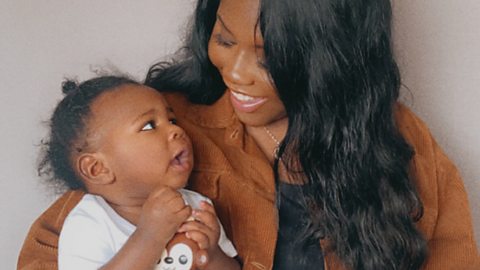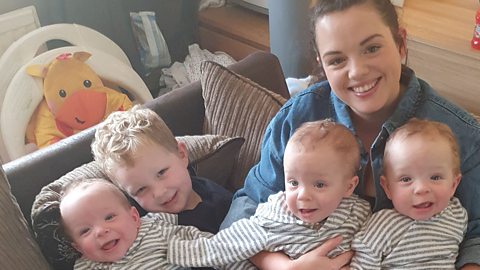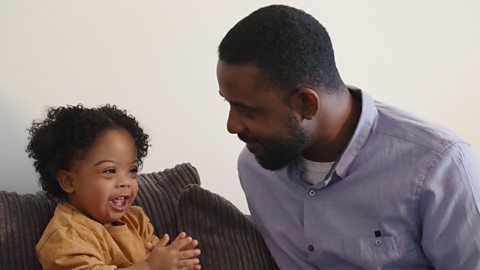Aynab, 27, is mum to 7 year-old Adam. He was born with a condition called Hypoplastic Right Heart Syndrome. She shares her experiences and tips for other parents who might find themselves in similar situations.
The pregnancy
I was in my first year of uni studying Education when I found out that I was pregnant. Everything seemed fine at my 12-week scan until the nurse said that they could see some fluid behind the babyŌĆÖs neck. I didnŌĆÖt know what it meant, but it seemed alarming. When I looked it up online later, the internet basically told me that my child wouldnŌĆÖt survive. I didnŌĆÖt want to talk to anyone about it. I shut myself off from the world and focussed on the rest of my pregnancy and my university work. I went for weekly monitoring appointments, and carried on finishing my first year of uni.
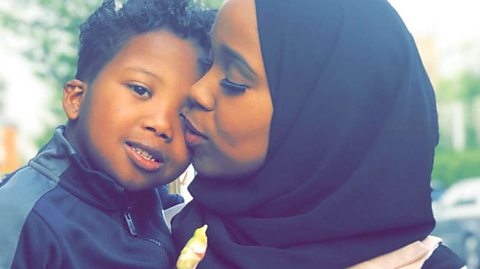
The diagnosis
At 28 weeks they sent me to Great Ormond Street for more tests. I went along with my sister and thatŌĆÖs where they told me that Adam was going to be born with a heart condition. I was given three choices: to give up the baby, to let him die in my arms, or to give him the medication that he needs. ItŌĆÖs impossible to describe the way I felt. I didnŌĆÖt want to talk to anybody after that; I just kind of went blank. My sister cried, but I didnŌĆÖt ŌĆō I felt a bit numb. I already had an instinct that nothing was going to go the way I wanted it to from that point. I made my decision though and told the doctors that I wanted to give birth to Adam naturally and give him the medication that he needs.
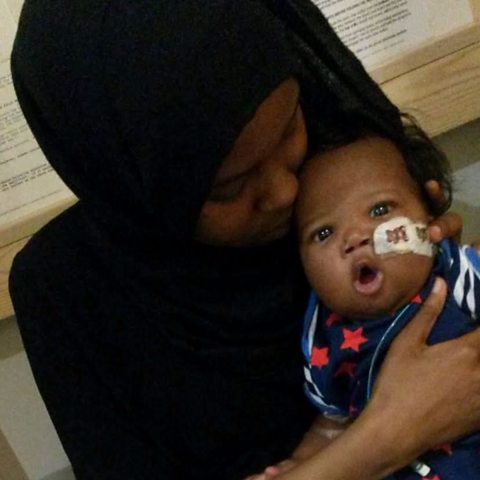
The birth
I had five or six doctors in the room while I was giving birth. As soon as Adam was born, they took him away to another neonatal unit. They did tests and scans and had to give him medication as soon as he was born. Adam has a called Hypoplastic Right Heart Syndrome, which is a rare condition in which some structures on the right hand side of the heart are underdeveloped or not formed. He was also born with club feet and a chromosomal disorder.
The next time I saw him was 30 hours after I had given birth, and he was attached to hundreds of wires. You expect that when your baby is born youŌĆÖre instantly going to think ŌĆ£IŌĆÖm so in loveŌĆØ. But really, it wasnŌĆÖt like that for me and Adam. Instead, the love and connection grew the more I got to see him and touch him.
Getting a confidence boost
One of the nurses saw that I didnŌĆÖt know what to do when I was trying to change Adam. He had hundreds of wires hanging off him, and I was worried about pulling one out by accident. She gave me the confidence I needed. She said to me, ŌĆ£if somethingŌĆÖs wrong with him, youŌĆÖll know, youŌĆÖre his mum.ŌĆØ Those words to me gave me confidence, they made me feel like ŌĆśIŌĆÖve got thisŌĆÖ. I went to find her a while back and told her that those words changed my life.
Bringing positive energy
Everyone is given something challenging in life. You have to find a way of seeing the positive things about a situation. I find a lot of comfort from my faith. I always say to myself that after hardship comes ease. This might be challenging right now, but IŌĆÖd say to new parents in a situation like mine: ŌĆ£youŌĆÖve got this.ŌĆØ Your child needs someone who has hope. It makes a big difference if youŌĆÖre able to smile as you hold kids. They can pick up on that in a way that adults sometimes donŌĆÖt even realise. When youŌĆÖre talking to your baby, even if theyŌĆÖre unwell, the energy that you bring makes such a big difference.

Finding online communities
My advice to parents in a similar situation is to talk to somebody and find support groups, online or in person. ThereŌĆÖs always other people going through similar situations who are able to be there for you. I found a Facebook Group for Hypoplastic Right Heart Syndrome and it had other mums and people in the exact same situation as me. YouŌĆÖd see a 30 year old with the same condition or a 5 year old, and just talking about daily challenges and symptoms was really useful. IŌĆÖve been involved in this group for the past 7 years and IŌĆÖve found it really helps.
Making time for yourself
I like going for drives and walks to wind down. I like to go alone when I can, I try not to go on my phone, and I prefer not to listen to music. When I come back I feel recharged. Sometimes things can get on top of you so itŌĆÖs important to make time for yourself. If you are able to take a tea break away from the kids it can give you a bit of breathing space. After that I always feel a bit calmer.
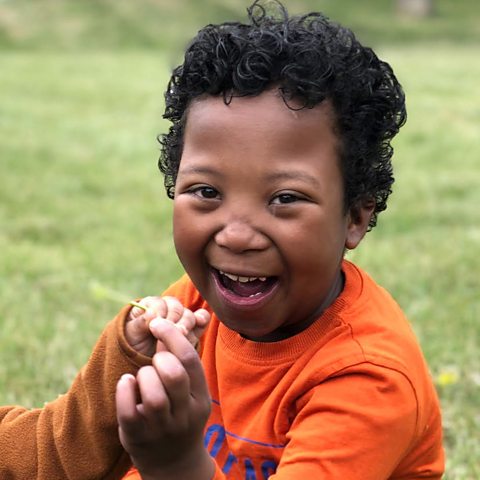
Building your child's confidence
You need your child to love themselves. AdamŌĆÖs speech is delayed and he gets a bit tired. He gets frustrated sometimes and people donŌĆÖt always understand him. I always tell him to take a breath and calm down, and to just try his best to stay in control of the situation. I do everything I can to help him build up his confidence.
He has scars on his chest from surgery, and when he goes swimming he hates it because people sometimes say things. I tell him that his scars are battle wounds, that he went through a war that nobody else has been through. It shows him how much stronger he is than everybody else. He loves his scars now, whereas before he didnŌĆÖt so much. Now he sees himself as Superman.
Adam is the strongest boy in the world. I donŌĆÖt know anybody who could have gone through what he went through.
Aynab's tips
- Find a support network
ItŌĆÖs really important to have good support from family or friends. My partner and my mum and my sister know how to look after Adam and can help deal with his medication.
- Take time to yourself
When I go for a walk every day it makes me feel fully recharged. Find whatever it is that works for you.
- Focus on the positives
Adam taught me that even if things are really hard right now, things do get easier and you will have a brighter smile at the end.


